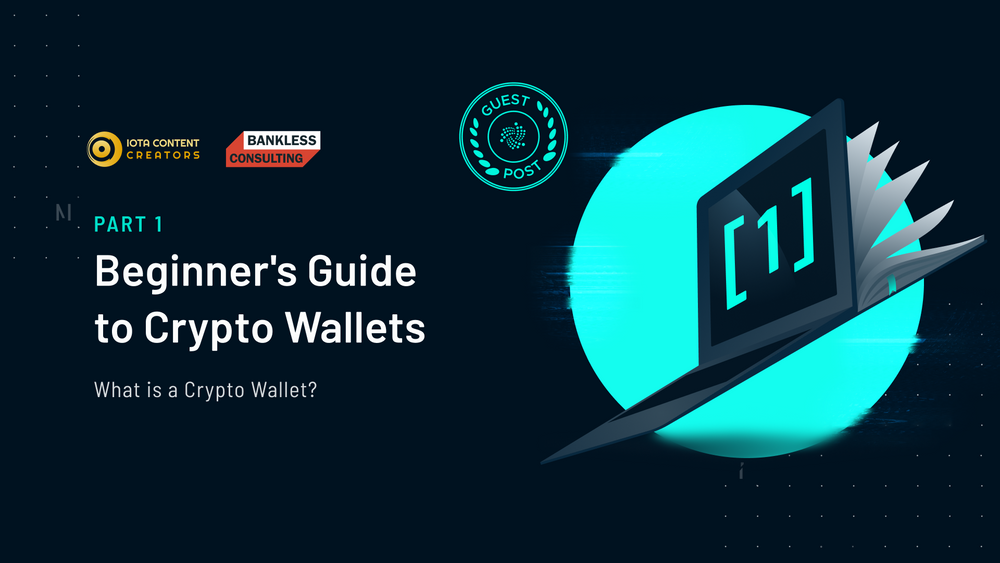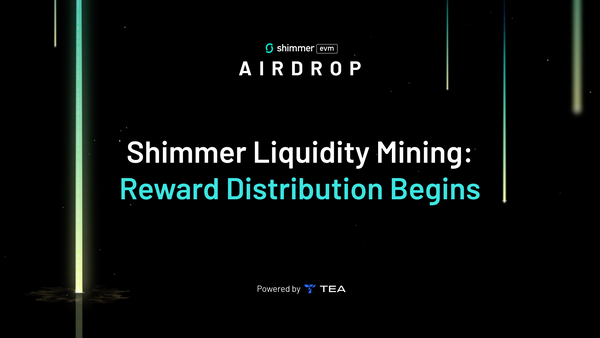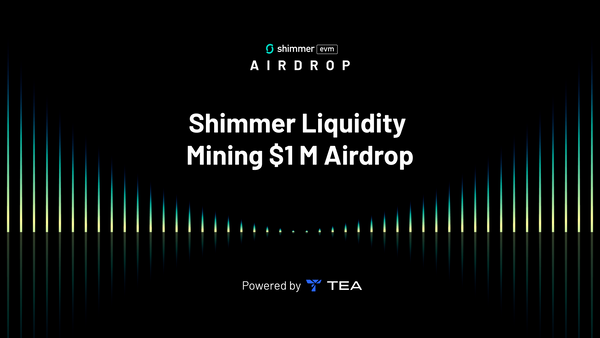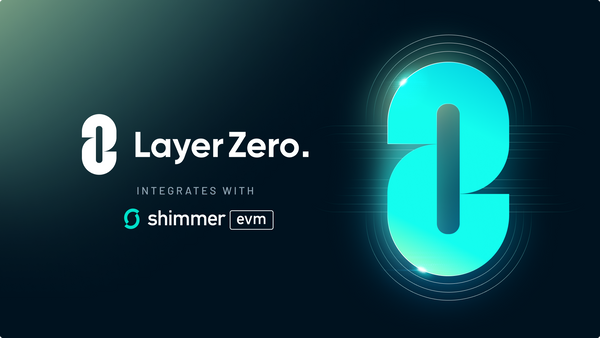Beginner's Guide to Crypto Wallets: Part 1
What is a Crypto Wallet?
TL;DR:
What are crypto wallets, what’s the difference between public and private keys, hot or cold wallets, custodial or non-custodial wallets, convenience versus security, and what factors should be taken into account when choosing the right wallet for you? This guide to crypto wallets by the IOTA Content Creators DAO and Bankless answers fundamental questions about crypto wallets. In Part 1, we look at public and private keys.
Crypto wallets are the window into the world of decentralized finance (DeFi) and therefore a major focus of innovation. But newcomers to the DeFi space need to understand the essentials of crypto wallets: the different types, their benefits and risks, and how to choose the wallet that best suits your needs.
What are crypto wallets?
A regular wallet in your pocket holds objects like your credit cards, ID, cash, and so on. Your crypto wallet isn’t exactly the same because it doesn’t actually hold anything. Instead, it grants access to a personalized experience.
However, your wallet does contain information in the form of public and private keys. These cryptographic terms allow one to buy and trade cryptocurrencies or NFTs. It’s important that as a beginner in the space, you understand a little about how public and private keys work without getting too deep into the math. These are common terms, and the same technology is used to secure the connection between your web browser and a website.
First, you have a public key that you can share, hence the name. This is also called a crypto address. On Ethereum, a public key begins with ‘0x’ followed by a very long string of letters and numbers. Similarly, on IOTA your public key will begin with ‘IOTA1’ and on Shimmer your public key will begin with ‘SMR1’.
Public keys are computed through some fairly complex math. Your public key can be freely given to others; it’s like your bank account number. So, if you want to receive crypto from someone you would give them your public key.
Your private key signs the transactions when you spend crypto assets or sell NFTs. Your private key allows you to transfer crypto that’s associated with your public key to another public key. That’s why private keys must remain exactly that: private.
While the math is complex, essentially, the public key is computed from the private key. It’s very difficult if not impossible to compute back the other way. The private key is generated from a seed phrase: a string of 12 to 24 short English words, each four to six characters long. The seed phrases generate a very long string of letters and numbers, even longer than for the private key. In Firefly, your private key is the 24 words that are displayed that you must verify when setting up your wallet.
The takeaway here is that your public key can be shared, while your private key or seed phrase must always remain private.
You will, unfortunately, encounter a lot of scams where people will say, “If you just send me your private seed phrase or private key, I can help you make money,” or “I can help you recover coins that were lost by a Nigerian prince,” etc. All of these types of offers are scams! No reputable company will ever ask you for your private key. When you’re working with your wallet, if you have a particular problem and you reach out to someone publicly you can guarantee you’ll have scammers getting in touch. If they ask for your private key or seed phrase, it’s a scam.
Remember:
- A crypto wallet doesn’t actually hold anything. It is simply a pair of cryptographic signatures called a public key and a private key that proves that you own the crypto.
- Your public key is like your bank account: it can be shared freely with anyone you want to transact with.
- Your private key signs your crypto transactions and you should never share your private key or seed phrase with anyone!
Next: Part 2 Types of Crypto Wallets
Beginner's Guide to Crypto Wallets
Part 1 What is a Crypto Wallet?
Part 2 Types of Crypto Wallets
Part 3 How To Choose Your Wallet
Part 4 Using Your Wallet
Find out more about the IOTA Content Creators DAO on Twitter and follow their newsletter on Medium. You can watch the full series of IOTA x Bankless DeFi education videos on YouTube. Our special thanks to 0xKB for hosting the Bankless session and to DigitalSoul.x. for preparing the original copy of this article for the IOTA Content Creators DAO newsletter.
Also in this series
Beginner's Guide to DEX vs. CEX
Follow us on our official channels for all the latest Shimmer news:
Discord | Twitter | LinkedIn | Reddit



